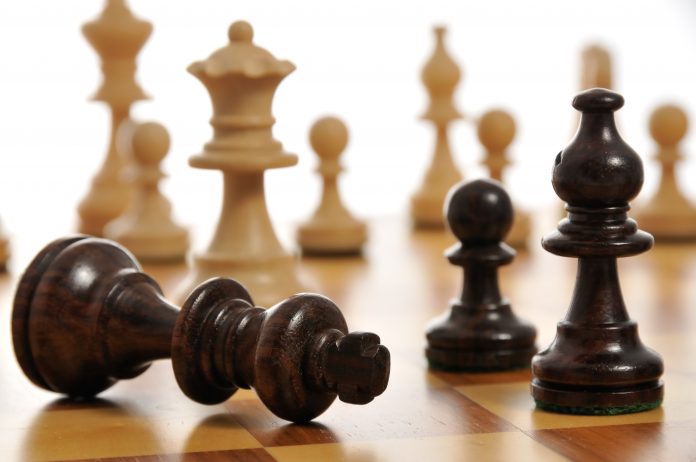Endgame makes or breaks your entire game. Pressure and exhaustion make players more susceptible to losing when they are not provided with guidelines. Keeping a few basic concepts in mind as a novice player will drastically improve your gameplay and chances of winning.
Endgames are hard to play, even for experienced chess players. People aim for a checkmate during the middlegame because endgames can be hectic. They require instinct, logic, quick decisions and fast play if you’re playing on time. This makes rookie players nervous and confused because the material is less. Yet there are so many chess endgame strategies one must implement that it becomes overwhelming, especially when you are new to playing chess. Knowing how to unfold a chess endgame is just as important as learning the basics.
There are only a few pieces that you can use to turn your game around. Remember that most chess game strategies to win used during the middlegame also apply here. So for example, you shouldn’t have backwards and isolated pawns, good-for-nothing or blocked bishops, a knight at the rim of the board. These small differences weaken your position and can give them an edge over you. Even with these similarities, some key differences that make the endgame unique and intellectually stimulating.
Since this seems to be difficult, and we are dedicated to making you master chess, follow these instructions to ace your next endgame fearlessly.
Mastering Checkmate
Checkmate means trapping the king from all sides, such that there is no place to escape. Mastering basic checkmates can decide whether you can win a game of chess or not. There are also different situations with the remaining pieces and the most common ones are King and Queen vs King, Two Rooks Vs king, King and Rook vs King, King and Two Bishops vs King, Knight & Bishop Vs king. The circumstances won’t be entirely the same but this gives you a glimpse of the scenarios you might encounter.
Passed Pawns
If you have any pawns that are nearing the opponent’s side during an endgame, then make sure that you push them further. If you have a pawn majority at one side of the board, keep advancing and exchanging your pawns until you can promote it to a queen. Note that this can be done even if you already have one queen and want to use another for your advantage.
Activating King
If you have traded queens with your opponent, or you sense that the endgame is about to begin, you should bring your king into the picture. All legendary endgame players would activate their king during the endgame. Do not involve the king if the opponent still has material at the centre of the board, but you do not want to lose because you brought in your king too late.
Two Weaknesses
So this chess endgame tip is often taught by coaches to their students. The basic idea behind this is to divert your enemy’s attention from your first advantage and create a weakness for yourself so they do not launch an attack on your first advantage. The first advantage becomes your weakness because it is more susceptible to attacks, by creating two weaknesses you divert your opponent to the second one.
Fewer Pieces
Every endgame requires precision, with too many pieces on the board you are more likely to make mistakes and blunder. The final part of the game requires your complete focus and brainpower. A famous grandmaster once said, “Endgames separates the Master from the Amateur”. So do not be afraid to play when all your material is lost and you only have a few pieces at hand, you can still do wonders.
Stalemate
Stalemate doesn’t occur often while playing chess but it can still happen. It is advisable to be aware of this situation if you have many pieces that are blocking the enemy king’s movement. If you are the one with less material then you can trick or force your opponent into a stalemate position, given that you are at a disadvantage.
Calculating
Endgame requires knowledge of tactics, positions and patterns more than any other phase of the game. Do not approach the endgame with a mindset that every move could be your last because it is difficult for you to evaluate as a beginner. Try to concentrate and calculate, do not play until you see a good move, that is the least you can do as someone who is just starting.
Final Thoughts
These chess endgame strategies should be enough to get you started for now. The only way to get better at them is to develop a player’s intuition by practice. You can hit the jackpot by playing chess online and learning from your opponents. If your opponent played incredibly well, pay attention to how they position their pieces and attack. Observing, analyzing and implementing are among the best ways to learn from any chess game.




